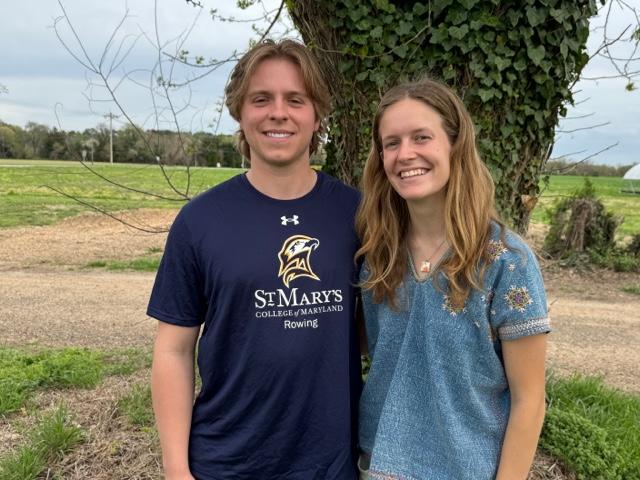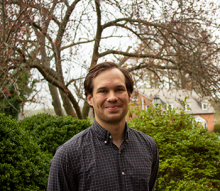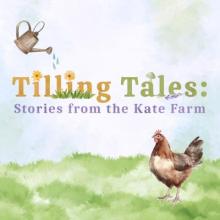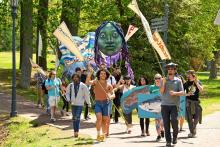
Two students from St. Mary’s College of Maryland, Ari Lecouras ’25 and Henry Russell ’25, presented their research on April 4 at the 3rd Annual Association for Environmental Studies and Sciences (AESS) Student Research Symposium, a virtual event that brought together student researchers from around the world to showcase their original work and engage with the broader environmental community.
The symposium provided a unique platform for graduate and undergraduate students to present their research in a variety of formats, including lightning talks, poster sessions and professional development activities. The event focused on promoting interdisciplinary collaboration and fostering networking opportunities between students, faculty and professionals in the environmental sciences and related fields.
Ari Lecouras presented on her research titled “Cultivating Resilience Through Community Farming,” which explored how community farms in the Jim Crow South—specifically Koinonia Farm in Georgia—became a means of resilience and autonomy for marginalized communities facing systemic oppression. Ari’s work, informed by archival work with historical records, scholarly research and activist writings, demonstrated how Koinonia’s agricultural practices contributed to social change and economic self-sufficiency during the Civil Rights era.
“Community farms like Koinonia were essential in helping marginalized communities build resilience and autonomy in the face of racial and economic injustice,” Lecouras explained. “Presenting at the symposium was a great opportunity to share this history and show how community farming can inspire both environmental and social justice movements today.”
Henry Russell focused his presentation on the challenges facing offshore wind energy development in the U.S. His talk, titled “Offshore Wind in the US: Challenges and Solutions Facing the Industry Today,” analyzed the key barriers hindering offshore wind development, including infrastructure issues, regulatory hurdles and community opposition. By examining case studies of the Block Island Wind Farm and the proposed Maryland Offshore Wind Farm, Henry proposed solutions to these challenges that could help the U.S. expand its offshore wind capacity to reduce emissions and meet growing electricity demands.
“Offshore wind has the potential to be a game-changer in the fight against climate change, but the U.S. needs to overcome key obstacles, including outdated infrastructure and regulatory challenges,” Russell said. “This research underscores the need for policy changes and public education to ensure that offshore wind can play a significant role in reducing emissions and meeting our growing electricity demands.”
Both students’ research was part of a larger tradition of interdisciplinary scholarship encouraged by eCo-Lab, a collaborative research space led by Barry Muchnick, associate professor and chair of the Environmental Studies Department. The mission of the eCo-Lab is to promote the creative exploration of human-nature interactions across a variety of disciplines, including the sciences, social sciences, arts, and humanities. The group’s work spans a broad range of scholarly activities, including student-led research, workshops, community engagement and partnerships designed to address complex social and environmental challenges.
Lecouras’ and Russell’s participation in the symposium was supported by the Environmental Studies Department, which helps educate and train the next generation of leaders committed to environmental and social change.



